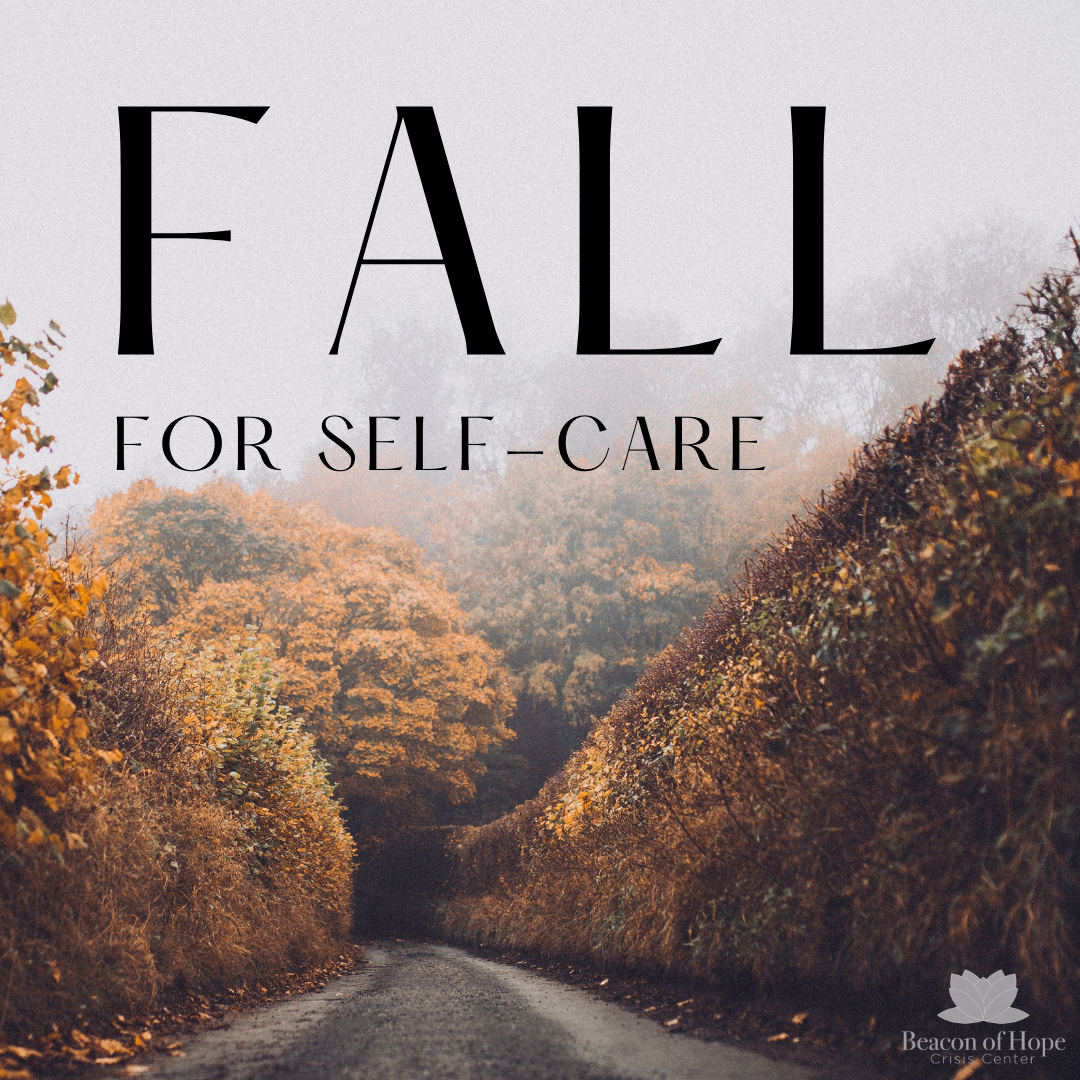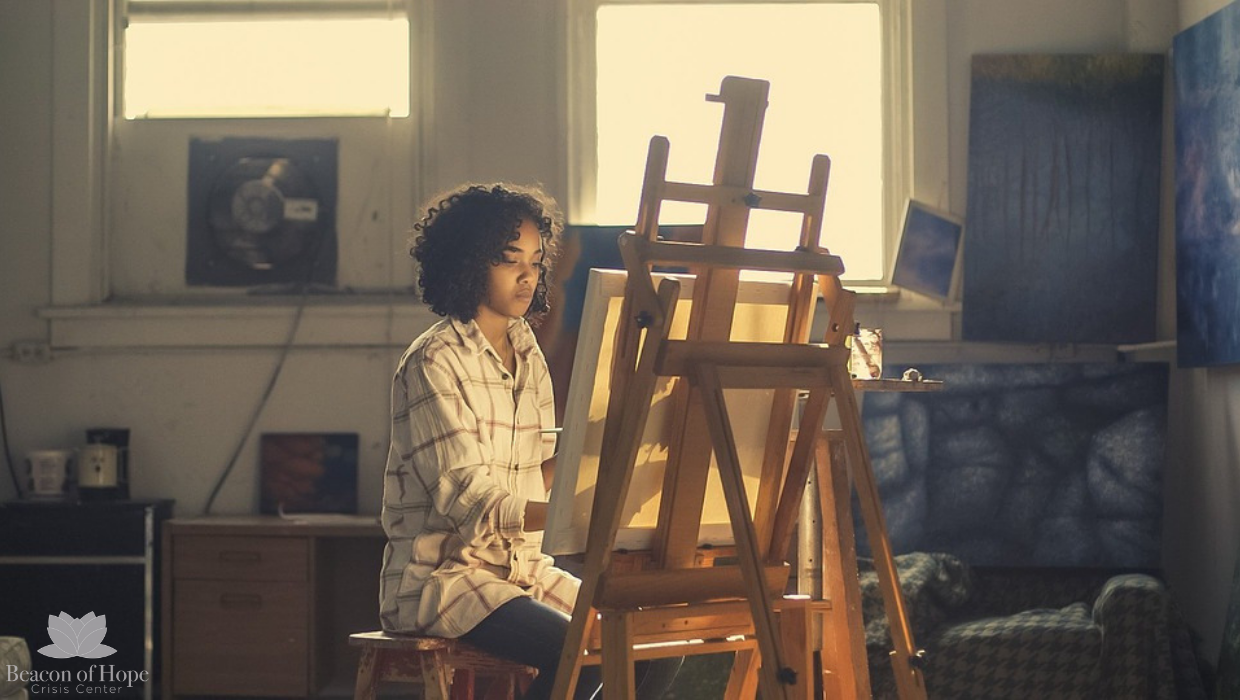|
By: Kaylee Kriese In the spirit of the cooler weather and the oncoming holiday season, we want to encourage everyone to practice some much-needed self-care. If you’re not feeling excited about self-care, this is for you. Oftentimes, the people who are opposed to the concept of self-care need it the most. We get it; you’re busy. Between the days getting shorter and your list of to-dos getting longer, we know that it’s all too easy not to schedule a time to take a moment and breathe. Below you will find some fall-themed self-care ideas just for you!
There are a million ways to practice self-care, especially in 2021; find what works for you. Some days, it will feel impossible to take even five minutes for yourself. Despite all this, keep pushing forward and working towards your goals. We know it’s hard to put yourself first but take the time to set some boundaries. Enjoy the coffee, put on a sweater, and maybe even do some deep breathing. We promise you’ll feel better for it. By: Cheyenne Taylor Domestic violence can take away your strength, your independence, and your feelings of safety. Even after the abusive individual is out of your life, you might find yourself facing conflicting emotions that can harm your mental health. Survivors of trauma are three times more likely to become depressed and often face challenges with anxiety, panic attacks, triggers, etc.
The truth is leaving an abusive relationship does not automatically equate to happiness and health. There is as an adjustment period. Survivors have to learn how to navigate life without the abuse. They have to unlearn behaviors and become comfortable making all their own choices. They also have to come to terms with the fact that the relationship is over. Survivors often feel sadness or grief over the loss of the relationship and those are normal emotions to feel. Whether it be the companionship, the security of a romantic connection, or a simple bond built from trauma, ending an abusive relationship is not as cut and dry as many believe. Healing from past hurts can seem impossible, but many survivors have been there and come out on the other side happier and healthier. It is important that victims know they are not alone. Healing starts from within. Taking care of yourself, prioritizing your happiness and health, and learning to use your voice after being silenced by violence are all crucial steps in the healing process. We are here to help ALL survivors through the steps in any way possible. Leaving is the most challenging part. The rest is healing and becoming the healthier new you. There will be setbacks, and there will be triumphs. We are here to help you through your healing process or to start your healing process. Call our victim advocates at 317-731-6140 to discuss our services that can help you on your journey. These calls are confidential, and all our services are free. By: Cheyenne Taylor Why is it that when we make our mental to-do list each day, we never add taking care of ourselves to that list? Thinking about yourself is something that is often painted in a negative light with terms like self-absorbed and self-centered coming to mind, but what about self-care? We tend to hold ourselves to higher standards than others. We make ourselves the exception to the golden rule, “treat others how you would like to be treated.” When we should really treat ourselves how we treat others. Think of how much happier you would be if you put as much energy into yourself as you put into your job or your friends and family.
Taking care of yourself should not be a second thought or something that is planned last. In the long run, you benefit so much more when you take care of yourself. You will feel and look better, and your attitude will improve. As a result, your social and professional life will also improve because you will have added something to combat the daily stressors you come into contact with. Self-care does not have to be a hassle, but it should become a part of your daily routine like taking a shower or brushing your teeth.
By: Savannah Tipton Sexual assault often results in no physical injuries to the victim, but this doesn’t make their experience any less traumatic. After an assault, victims may experience significant short-term and long-term effects.
Effects of Sexual Assault:
Sexual assault is often perpetrated by someone the victim knows (acquaintance, friend, family, etc.). The majority of assaults occur at or near a victim’s home (RAINN). Many of us were taught about “stranger danger” in the past and some people may still believe that no one they know “could do something like that.” Unfortunately, we do not get to live in a world free from danger. However, together we can raise our voices to make a change. Start by believing survivors. If someone discloses they have been sexually assaulted, listen and believe them. If they disclose shortly after an assault, encourage them to get an exam done at the hospital. Sexual assault exams are done for free in Indiana and an experienced SANE nurse (Sexual Assault Nurse Examiner) can collect evidence that may not be available later on. This is also an opportunity for survivors to get medical care, testing, and ongoing support. Referring survivors to community resources is another way to help and you can encourage them to speak with a victim advocate. Victim advocates offer free support, education, and community referrals. Advocates can also answer questions about protective orders and reporting to law enforcement. Want to get more involved? Get out in the community and start volunteering! There are a variety of volunteer opportunities to help survivors near you. Volunteers opportunities generally include fundraising, events, volunteer advocacy, and more. Visit the career tab to learn more about volunteer and internship opportunities at Beacon of Hope Crisis Center. Finally, show survivors you stand with them as an ally by sharing resources, statistics, and other information from services providers. The simple act of sharing a post has the potential to reach someone who may need help. Your voice has power, use it to support survivors. #AllyToSurvivors If you or someone you know is a victim or survivor in need of services, please contact our confidential crisis line at 317-731-6140. Advocates are a confidential source of support available to help survivors. By: Shelby Bubnick & Savannah Tipton Focusing on the positives in life can be difficult after experiencing trauma. An excellent way to lift your spirits is to write down everything you are grateful for. You can do this weekly or daily, whatever works for you and your schedule. Keeping a gratitude journal can improve your mood, make you more resilient, and can even help you live longer. It’s simple! Start your gratitude journal with five things you are grateful for. Repeat this activity at least once a week.
TIPS
|
About this blog
This blog is about our domestic and sexual violence crisis center, Beacon of Hope. We hope you find it full of helpful information, motivation, creativity, serious facts and positivity. We hope that it will help you know what is happening in our center, in our community and with our events. We hope you follow our blog in support of our organization and our mission. Archives
October 2024
Categories
All
|
|
CAREER opportunities © 2024 Beacon of Hope Crisis Center Privacy Policy Accessibility Statement Training Portal Login |






 RSS Feed
RSS Feed